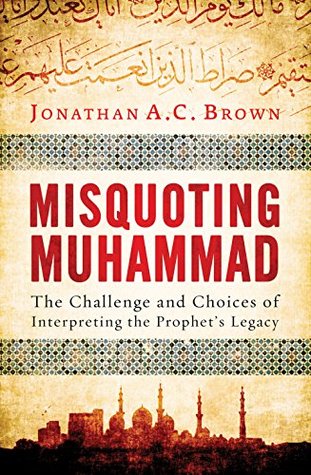More on this book
Community
Kindle Notes & Highlights
Read between
December 31, 2019 - February 27, 2021
Studies on how people pass on information or impressions demonstrate that, while attitudes and opinions are primary beliefs that tend to survive communication from person to person intact, the certainty or doubt about those attitudes or opinions tends to be lost along the way.
No one in the gathering felt any need to question the authenticity of this living Hadith. It had no relation to the rulings of the Shariah or to Islamic theology. The Baraka, or pious blessings, of this smiling old shaykh inspired us and warmed the hearts of his guests. We all felt incorporated into an intimate bond with the Arabian prophet of fourteen centuries past. In time, we will feed dates and water to another generation and recount the chain of connection, brought into the present with our names added on at the end, in turn.
During the question-and-answer period, this speaker too was asked how Muslims should make sense of what is sometimes simply referred to as ‘The Wife Beating Verse.’ He replied that, contrary to what is widely believed, the Shariah in no way condoned a husband striking his wife. He pointed out that the Arabic verb taken to mean ‘strike’ or ‘beat’ in the verse, daraba, had been incorrectly interpreted. God could not have intended this meaning because it would have contradicted the conduct of the Prophet, whom well-known Hadiths described as never having struck any of his wives in any way. Daraba
...more
The professor and the shaykh were delivering the same message. Both rejected categorically the evident meaning of Qur’an verse 4:34, refusing to accept that Islam’s sacred scripture could condone domestic violence. But the approaches and appeals of the two speakers differed dramatically. The first speaker attacked tradition from outside it, appealing to the authority of ‘this day and age.’ The second mounted a defense of tradition from within, deriving authority by acting as an indigenous and trusted bearer of sacred knowledge. The first speaker, in effect, defied the text of the Qur’an,
...more
Reconsidering the specifics of how the ulama had interpreted the word daraba, however, did not mean rejecting the Shariah. Rather, it meant fulfilling it as a comprehensive set of values, Abu Sulayman insisted. Like Ghazali’s arguments about women heads of state, Abu Sulayman based his interpretation of Qur’an 4:34 on Muslims’ duty to pursue the ‘aims of the Shariah (Maqasid al-Shariah)’ even if it meant breaking with consensus on the law’s details. In the case of family life and marriage, Islam’s overarching and abiding objectives were affection and mercy. Violence and intimidation
...more
Here we must remember, however, that there is no such thing as ‘literal meaning’ in its usual sense of ‘what a text really says.’ We often assume that, however much we differ on interpretations, a statement or text has an obvious and objective ‘literal’ aspect that preserves an unchanging core of meaning and cannot be escaped. We assume that we can isolate this stable, stand-alone meaning using the dictionary definition of its words and by removing it from any context. What we might term the ‘dictionary meaning’ of a text may indeed exist, but it is neither objective nor universal. As
...more
‘Literal meaning’ is also commonly understood as the meaning that makes sense to us with the least interpretive effort. Put simply, it is the first coherent meaning that comes to mind. Better termed ‘evident meaning,’ as the Muslim legal theorists called it (Zahir, or ‘outward’), this is not necessarily the same as the dictionary meaning.
The evident meaning of a text seems obvious to those within an interpretive community, but, as Detective Frank Drebin illustrates, moving from the dictionary meaning to the evident one requires significant, if unnoticed, interpretive steps. In evident (i.e., ‘literal’) meaning, these unnoticed steps are those assumptions that the reader leaves unstated because he or she assumes everyone else shares them. Frank Drebin is so humorous because he is clueless about them. A tough noir cop supposedly ensconced in society and its hard-boiled dialogue, he is comically outside its interpretive
...more
The canonical Sunni Hadith collections also include recollections of the Prophet’s Farewell Sermon, given on Hajj in what would be the final year of his life. One of the parting pieces of wisdom he leaves his followers is the commandment to ‘Fear God as concerns your womenfolk, for indeed you took charge of them with God’s assurance.’ The Prophet further explains that only if a wife allows herself to converse with men against her husband’s wishes or, in another version of the Hadith, commits some grievous transgression (fahisha mubayyina, a phrase with sexual innuendo) can the husband strike
...more
A twelfth-century Shariah judge in Seville named Ibn Al-Arabi, who had traveled east to study in Baghdad, instructed his students that people are not all the same in how they should be disciplined. ‘A slave might be hit with a stick,’ the judge noted as an analogy, ‘while with a free man it’s enough to point it at him.’


